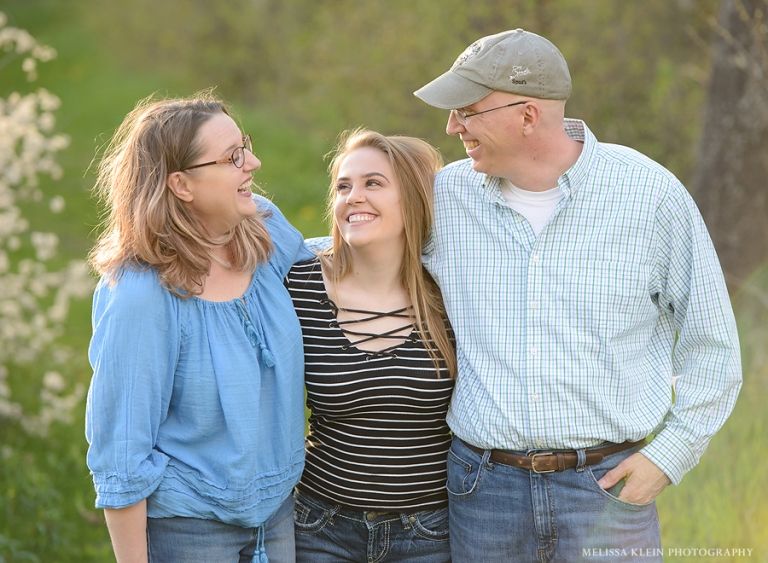With Florida’s six-week abortion ban going into effect on Wednesday, I looked to the National Institutes of Health website to help me understand how many woman this will impact. The best source I found is a 2017 study by Amy Branum and Katherine Ahrens of the National Center for Health Statistics at the Centers for Disease Control. They were looking for trends over time in when women realize they are pregnant, and they examined about 50,000 pregnancies going back all the way to 1995. What they found is that things have remained remarkably stable in that time period, with a mean average of 5.5 weeks.
For the purposes of the study, responses on gestational age at time of pregnancy awareness was “dichotomized into ‘early awareness’ (0–6 weeks) and ‘late awareness’ (≥7 weeks).” They calculated the average, or mean, but I don’t see results for median, meaning half are above and half or below the number. I assume the mean and median do not differ by much.
Let’s begin with the obvious. If you discover you’re pregnant at 5.5 weeks in Florida, as of Wednesday, you have at best three to four days to legally get an abortion, and that’s assuming the doctor will assume the risk of running afoul of the law when the margin is that close. That gives almost time to consider options, talk to your partner, pastor, or perhaps your parents, research adoption, etc. It provides no time to deal with logistics, like money or travel, or even simply fitting in an appointment. This is the experience the “average” Florida woman or girl will now face. Twenty-three percent of women had “late pregnancy awareness” of 7 weeks or more, with subgroups like girls age 15-19 (36 percent). never married (33 percent), non-hispanic black (31 percent) and no high school degree/GED (29 percent) ranking higher. All of these women will have no option of abortion at all.
Now, the average may be 5.5 weeks, but it’s not like there are a lot of women who discover they’re pregnant much earlier than that. First of all, gestational age is based on the date of the last period, not the date of conception, and not the date of a missed period. Women are fertile about 12-14 days after their last period, so conception typically takes place two weeks later. It takes a minimum of 10 days after sex for a pregnancy test to detect hormones, but Planned Parenthood warns that testing at that early stage is unreliable and likely to result in false negative results. They say it’s better to wait until a missed period, which would normally be at least two weeks after sex or four weeks after the end of the last period. So, if Florida women take a pregnancy test at the earliest reliable opportunity, they have at best two weeks to decide and arrange an abortion. Only in rare cases will anyone have a larger window, and it will only be a few days longer.
I think this change in the law can fairly be said to affect all Floridian women who become pregnant, even in cases where abortion isn’t a consideration. That’s because the choice is effectively removed. And that is, of course, the point.
Writing in Scientific American about Texas’s six-week abortion ban, Michelle Rodrigues makes the same points:
Pregnancy math is confusing, and it’s unclear whether legislators involved are simply ignorant on reproductive biology or recognize that it’s an indirect way to ban all abortions.
But in reality, the six-week ban limits abortion care to only four weeks after conception, and only one week, realistically, from when a person could find out they are pregnant. At this stage, an embryo has implanted and has a neural tube, and the blood vessel that will develop into the heart begins pulsing. This pulsing, or “heartbeat,” is the basis for the emotional appeal of these bills. But at this early stage, the embryo is still in the process of differentiating organs and won’t be classified as a “fetus” until about a month later.
This pulsing blood vessel gives the “heartbeat” name to these six-week bans, and that’s highly dubious as a demarcation. But I’m focused less on scientific or moral arguments for or against abortion than on the inevitable impact the laws will have.
And it goes beyond what I’ve so far discussed, because once you effectively remove abortion as a legal option, then there’s a practical response. Parents who don’t want their young daughters to wind up as parents themselves will have to consider treating them much differently than they treat their sons. Here’s a window into that future from a 2005 article in the Orlando Sentinel:
Edith Rodriguez of West Palm Beach makes no apology about insisting her daughter, Camille, be flanked by chaperones on every outing.
“It’s not because I don’t trust my daughter,” said Rodriguez, 50, a bookkeeper for a cultural organization. “I just don’t trust anybody else.”
While the traditional Hispanic practice of requiring a chaperona for daughters is a dying custom in the United States, it’s not dead.
Growing up in Puerto Rico, Rodriguez said, her parents would not let her out of her house without a chaperone, even after she married at 21.
“When I was young, I didn’t like it. I couldn’t go out to buy milk or ice cream by myself, even after I was married and owned a home. But now that I’m a mother, I understand why my parents tried to protect me. It’s a matter of culture and family honor.
Obviously, we’re familiar with how women are protected from contact with men in Muslim cultures. But in a lot of ways, the culture follows the law rather than the other way around. The Sentinel article from 2005 said the chaperone system was already “a dying custom” among Hispanics in the United States. This is undoubtedly in large part because a safe and legal abortion option meant every unplanned or unwanted pregnancy no longer resulted in an unplanned and likely unwanted marriage, or a young single mother that might bring shame on the family.
But this calculation will now be part of parenting for all Floridians, whether from traditional Hispanic families or not. So, many young girls won’t have the same freedoms enjoyed by girls in other states, particularly in the North. They may not be allowed to be alone with boys or to go on dates or out with a group of friends. These changes will begin overnight, but it will take some time for the culture to adapt to accommodate the change.
I can tell you already, that even though I have a son rather than a daughter, I will advise against him going to college in the South or anyplace these restrictions are in place. I would be even firmer with a daughter, because she could become pregnant without consent or find herself having to defend a miscarriage to investigators.
That is no way to live. And I think parents are going to HATE this new world almost much as their children.
.







